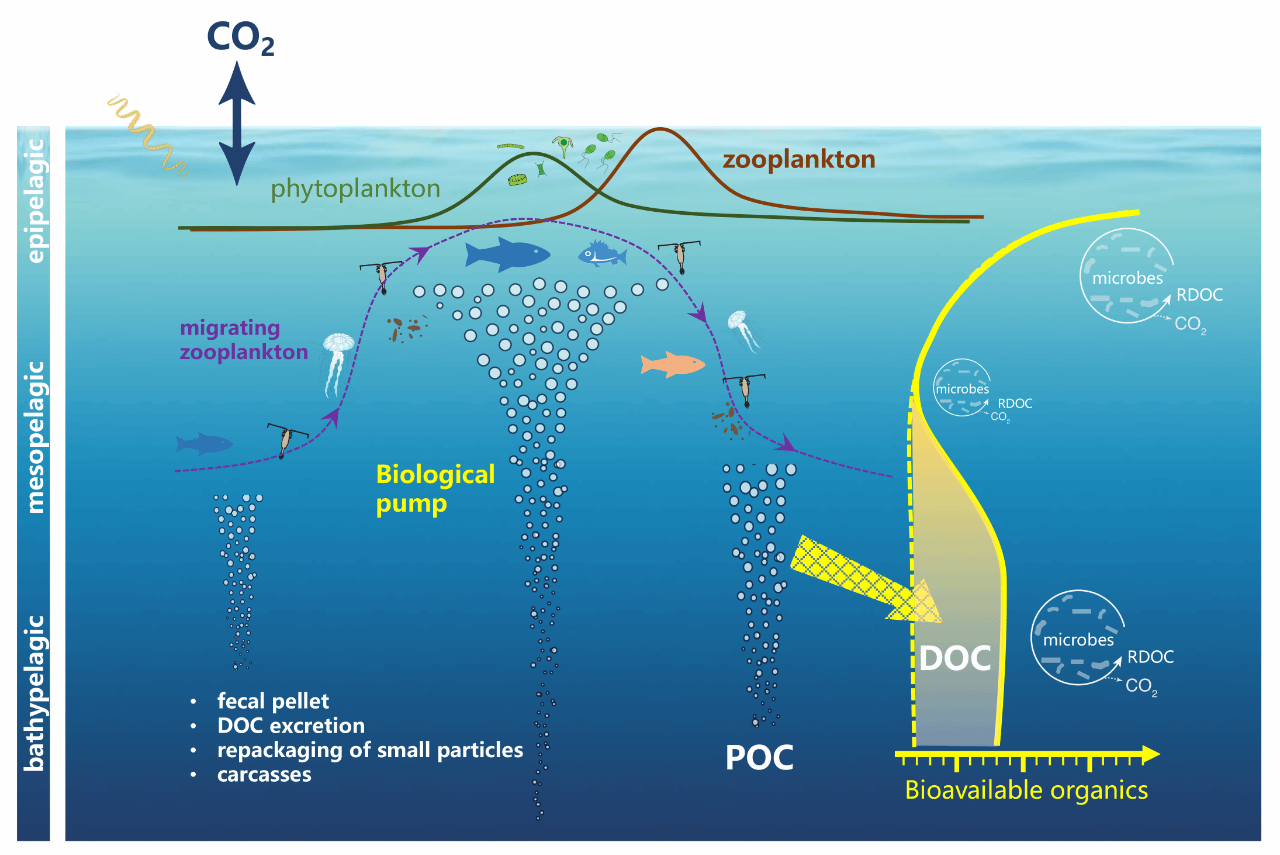Abstract
Earth's deep ocean holds a vast reservoir of dissolved organic carbon, traditionally considered old and resistant to microbial degradation. Radiocarbon analyses indicate the hidden occurrence of younger dissolved organic carbon components, assumed to be accessible to deep-sea microorganisms but not yet demonstrated. Using compound-class radiocarbon analysis, molecular characterization, and bioassay experiments, we provide direct evidence for rapid microbial utilization of young, labile, high–molecular weight proteinaceous material in bathypelagic waters. The abundance of labile proteinaceous material diminishes from epipelagic to mesopelagic waters but notably increases in bathypelagic waters, where it exhibits a short turnover time (days) and resembles surface plankton in molecular composition. This observation coincides with peak zooplankton biomass recorded over the year. The nonmonotonic depth trend suggests a deep-sea replenishment of organic particles from mesopelagic migrating zooplankton. Our results indicate the presence of labile organic molecules at bathypelagic depths and reveal a nonlinear supply of plankton-derived substrates that support microbial metabolism and carbon sequestration in the deep ocean.

Shen Y.*, Benner R.*, Broek T., Walker B., McCarthy M. 2025. Special delivery of proteinaceous matter to deep-sea microbes. Science Advances, 11,eadr0736
https://www.science.org/doi/10.1126/sciadv.adr0736